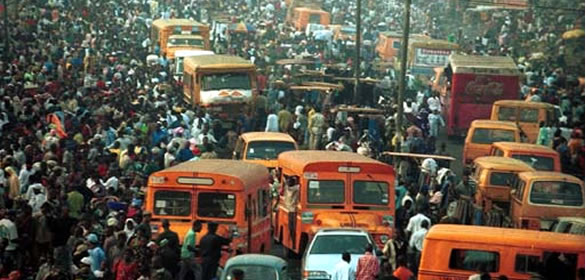
The Economist has some interesting things to say about Nigeria’s “Center of Excellence,” Lagos.
In an article titled Learning from Lagos, the publication highlights the city’s purported bad aspects, and lauds it for improvements being made.
Here are excerpts from the article:
The bad/ugly
The good
Mr Tinubu and his successor as governor, Babatunde Fashola, both say their efforts to reform were often frustrated by the PDP-led federal government. It failed to upgrade the main roads in the city that were under federal control, including one leading to West Africa’s biggest port. It delayed approval for an important train line that the state government was willing to pay for. “I don’t want to be understood as recriminating,” Mr Fashola says, “but I know things could have been better.”
Instead of relying on Abuja for funds, Lagos learned to generate its own. It created passable systems to monitor its own spending and squeeze taxes out of citizens not known for their eager compliance with such things. Internally generated revenue has risen to 23 billion naira ($115m) per month, from almost nothing a few years ago. That still amounts to only a few tax dollars per person. But the state has been able to borrow against that income to finance projects such as a much-needed bridge linking the upmarket areas of Ikoyi and Lekki. Moreover, its reliance on local tax collection has forced it to improve its services in order to attract businesses.
And in this regard it has done well. The state produces about $90 billion a year in goods and services, making its economy bigger than that of most African countries, including Ghana and Kenya. Much of Nigeria’s industry, which once thrived in the north, can now be found in the suburban manufacturing estate of Agbara. Cranes hang over the city and land is being reclaimed from the sea as developers rush to satisfy the vast appetite for property…
| Posted: at | |



 TRENDING GISTS
TRENDING GISTS  Man Madu Simon Arrested As NAFDAC Bust Lagos Outlet Where Expired Drinks Are Sold (VID)
Man Madu Simon Arrested As NAFDAC Bust Lagos Outlet Where Expired Drinks Are Sold (VID) IPOB Leader, Nnamdi Kanu Clears The Air On His Role in 2020 #EndSARS Protest
IPOB Leader, Nnamdi Kanu Clears The Air On His Role in 2020 #EndSARS Protest Moment A Man Stole iPhone 14 Pro Max & Samsung Phone While Salesgirls Were in Deep Sleep
Moment A Man Stole iPhone 14 Pro Max & Samsung Phone While Salesgirls Were in Deep Sleep Fan Gushes As MC Oluomo’s Daughter Gets Engaged
Fan Gushes As MC Oluomo’s Daughter Gets Engaged VIDEO; "Davido Gifted My Girlfriend ₦10 Million For Supporting Me" - Rapper, Odumodublvck
VIDEO; "Davido Gifted My Girlfriend ₦10 Million For Supporting Me" - Rapper, Odumodublvck Mayor Of Boston Celebrates Nigerian Singer, Rema’s Role In Championing Afrobeat Worldwide
Mayor Of Boston Celebrates Nigerian Singer, Rema’s Role In Championing Afrobeat Worldwide PHOTOS: Troops Arrest Four Suspected Terrorists, Recover Arms And Ammunition In Taraba
PHOTOS: Troops Arrest Four Suspected Terrorists, Recover Arms And Ammunition In Taraba